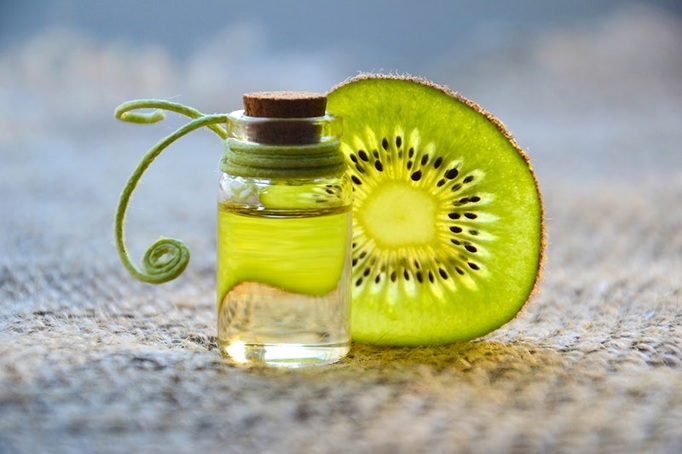In the past few years, essential oils have gained massive popularity. Though these oils have been in use since ancient times, the modern generation is lately opening up to its many benefits. And if you are also keen on trying these oils out, stop before you buy a bottle. There are certain do-s and don’ts to be remembered for the proper use of essential oils. So, give this a read before buying the oils.
Do’s:
#1 Make sure you aren’t allergic to the oil
The patchouli essential oil benefits work wonders for some people. On the other hand, some individuals might be allergic to it. They would be better off trying other essential oils, such as lavender or rosemary.
Thus, it is always better to run a patch test before you use the oil. To know about patchouli scent benefits specifically for yourself, use one or two drops of the diluted oil on a small area of your skin. Continue using the oil if there is no reaction.
Must Read: 9 Things You Didn’t Know About Patchouli Oil
#2 Always dilute the oil before usage
Essential oils should always be diluted before topical application. Remember that these are highly concentrated oils that can be too strong to apply straight from the bottle.
There are different ways to dilute these oils. For instance, you can mix them with a carrier oil, such as olive oil or sweet almond oil. Even bath gels or creams work well in this regard. But keep in mind that the solution needs to have only one to five percent of essential oil and not more.
#3 Keep the expiry date of the oils in mind
Though the expiry date can vary from one essential oil to another, you are not generally supposed to keep the oils for over three years. As an essential oil ages, it gets spoiled due to continuous oxygen exposure. Apart from not giving you the desired benefits, these oils can cause skin irritation and allergies.
So, if you notice any major change in the look, feel, and smell of the oil, it is time to toss it out. These are signs that the oil is spoiled beyond recovery.
#4 Consider the age before applying the oil
Typically, essential oils are not meant for babies and young children because they are extra sensitive to it. In fact, you should steer clear of oils like wintergreen and birch when it comes to babies.
Even when used in smaller amounts, such essential oils can lead to severe health problems in children below six years old because the products have a chemical known as methyl salicylate. So, don’t use essential oils on babies without a pediatrician’s advice.
#5 Be careful of choosing your essential oils
When it comes to choosing essential oils, it’s not just about whether they can cause an allergic reaction to your skin or not. It is also about the quality of the essential oil.
There are plenty of fake or heavily diluted products available in the market that do you no good. You will spend your money buying those products but gain nothing from using them, which gives essential oils a bad reputation. So, make sure that the products you choose are authentic and high-quality.
Don’ts:
#6 Think it’s good just because it’s natural
Simply because essential oils are from plants does not mean you can start rubbing it anywhere you want on your skin. The same goes for breathing in the essential oils. Just because it is natural or pure does not mean it is good for you. In fact, some natural substances can be particularly irritating to your skin and lead to rashes or allergies.
So, as mentioned before, dilute the essential oil with some carrier oil and do a patch test.
#7 Apply essential oil over damaged skin
There is a way of using the essential oils, and not following that can be really harmful. As such, one of the first rules of using essential oils is not to apply them over damaged or irritated skin.
Inflamed or injured skin tends to absorb oil in greater quantities, which ultimately leads to skin reactions. In fact, you already know that you shouldn’t use undiluted oils. Also, remember that putting concentrated essential oil over damaged skin can be dangerous.
#8 Extra oil means extra benefits
Of course, essential oils are packed with goodness and wellness benefits. So, adding a bit of extra oil to your daily routine can’t be harmful, right? Wrong! Too much essential oil is a bad idea even when you are diluting it with something else. This is true even when you are not too sensitive to the oil or allergic to it.
Also, there is no need to use these oils frequently in a day. Just once a day would suffice for the best results.
#9 Use therapeutic and food grade oils interchangeably
Though some essential oils are food grade and meant to be used for cooking and flavoring, not all of them are. You cannot use food grade and therapeutic essential oils interchangeably. In fact, the latter is simply not to be used internally.
Therapeutic oils are highly concentrated and potent for such usage. Besides, these oils have chemicals that are not harmful for your skin, but definitely not suitable for your digestive system.
#10 Keep the essential oils under direct sunlight
The product gets spoiled beyond use too soon if you keep it under direct sunlight. So, your best bet is to keep the oils in a cool and dry place. Your kitchen cabinet can be a good choice as a storage place – but not right next to the stovetop or microwave oven. All kinds of direct sources of light and heat are bad for essential oils.
Also, remember to buy a dark-hued glass contained to store the essential oils. It will help to extend the shelf-life of the oils.
And that’s all! Your knowledge about the right way of using essential oils has now been updated. It is time to go ahead and choose your favorite one among the many options.









